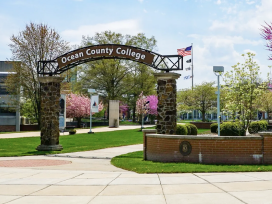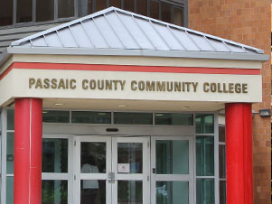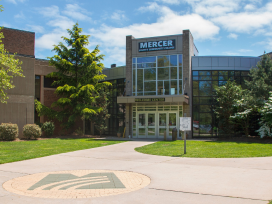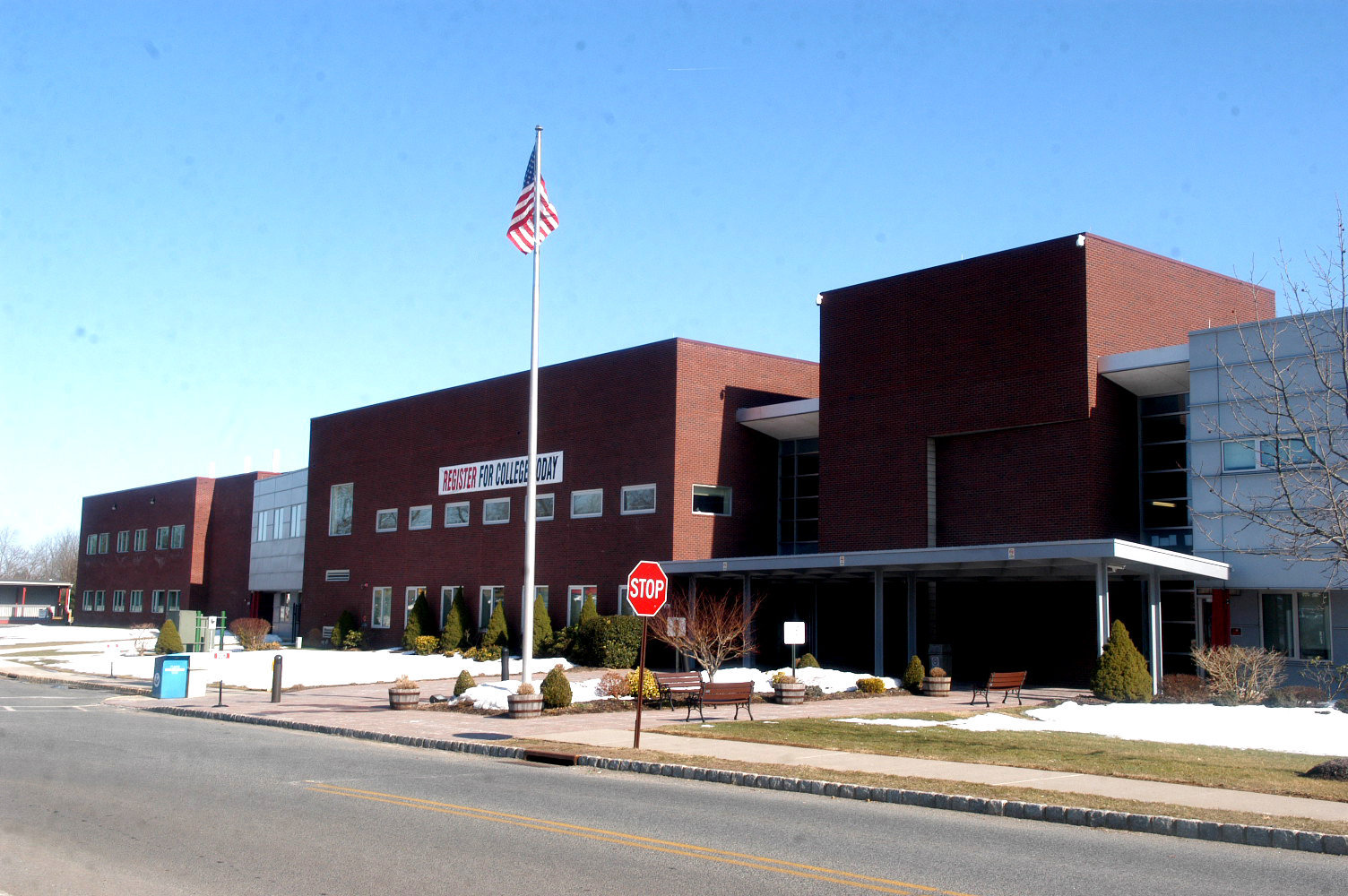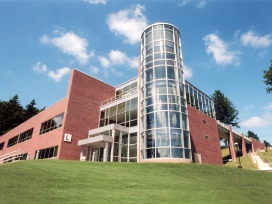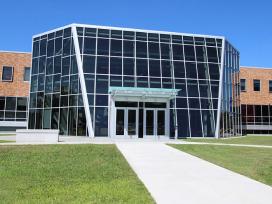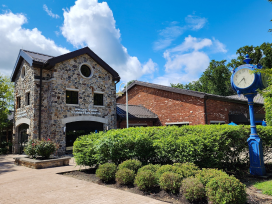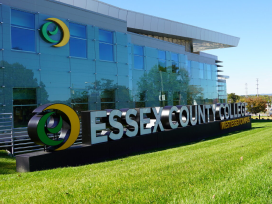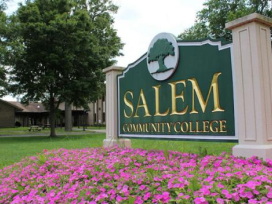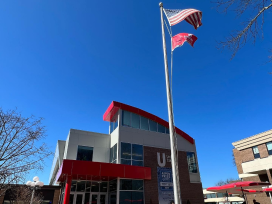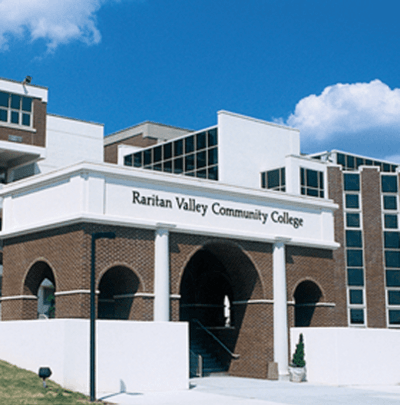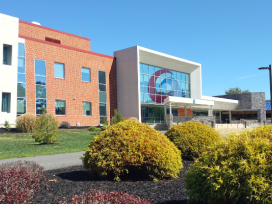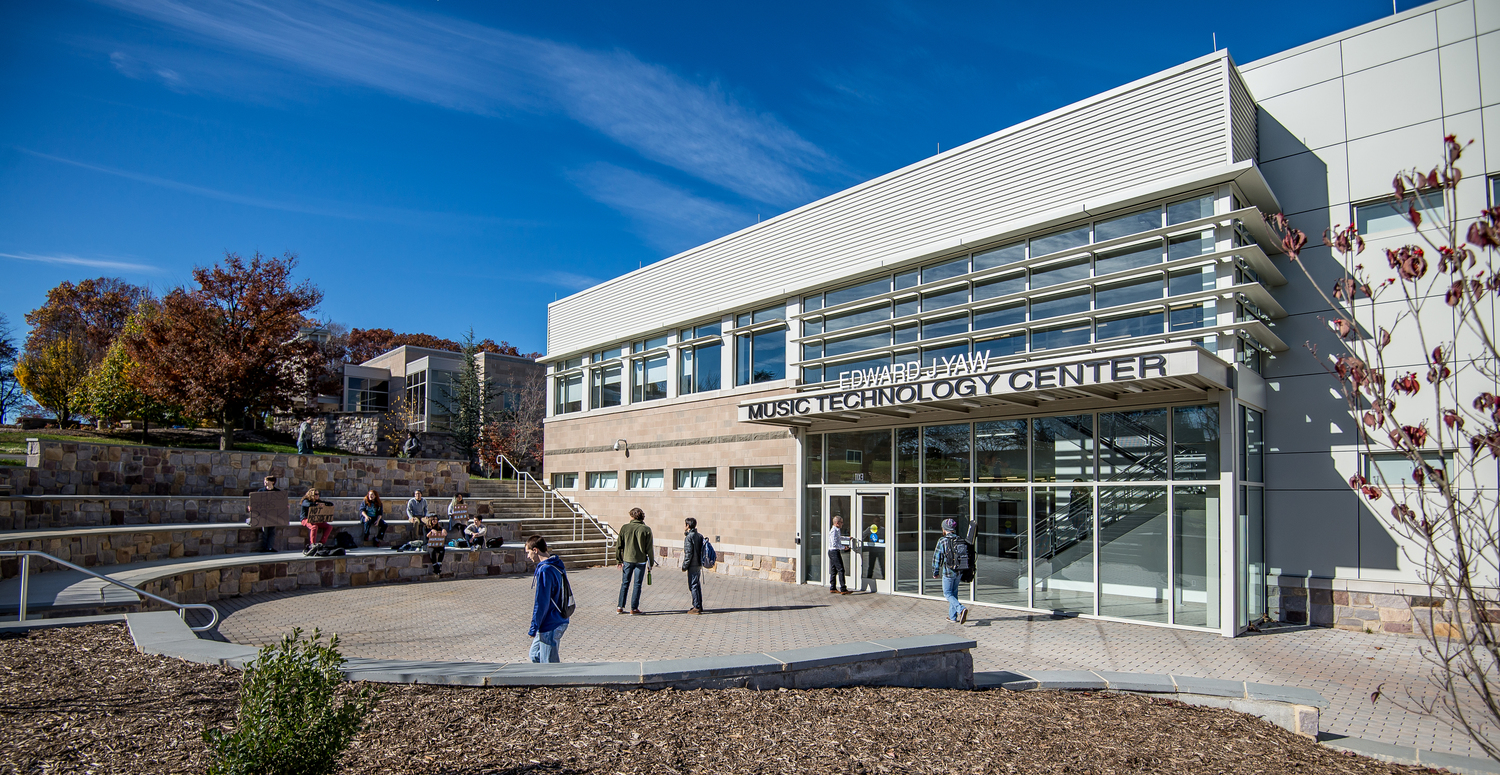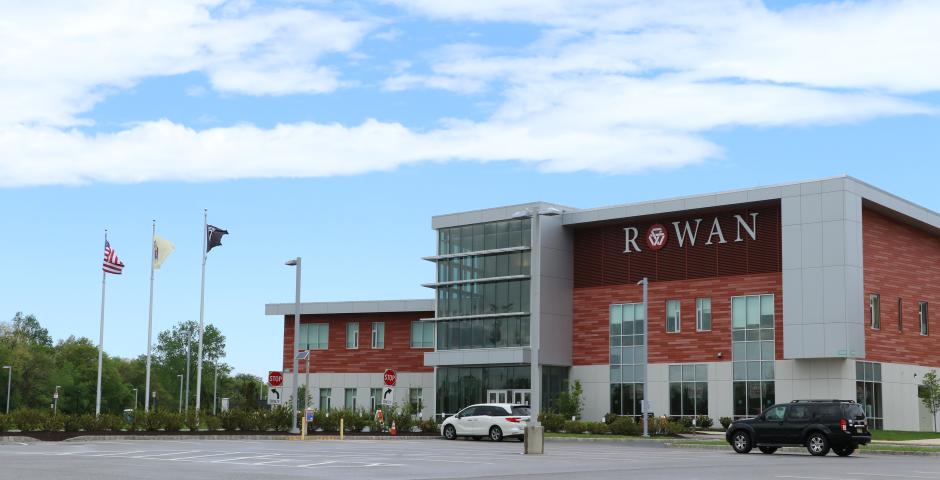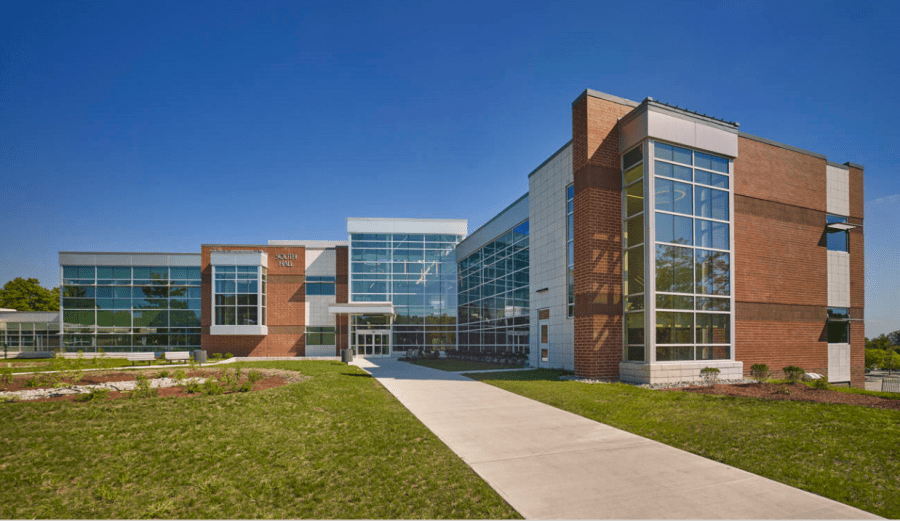NJCCC Launches Future Ready New Jersey Coalition
On September 30, 2025, the New Jersey Council of County Colleges, the state’s 18 community colleges, and a wide array of partners launched the Future Ready New Jersey Coalition, a cross-sector, action-focused coalition dedicated to advancing broad-based economic mobility and prosperity in our state. Close to 140 individuals attended the daylong convening at Middlesex College, representing education, employers, community-based and social justice organizations, philanthropic and charitable organizations, the public workforce system, researchers, librarians, and government.
The Future Ready New Jersey Coalition builds on the NJCCC’s recently released Opportunity Agenda: A Collective Roadmap for Action and a Future Ready New Jersey, the Pathways to Career Opportunities Initiative, and New Jersey’s selection as one of twelve states in the Lumina Foundation’s FutureReady States Initiative.
Following a welcome from Middlesex College President Mark McCormick, NJCCC President Aaron Fichtner outlined the purpose of the day and the goals of the coalition, including collaborating to shape state policies and priorities that promote economic mobility for all New Jerseyans.
Chauncy Lennon, Vice President for Learning and Work and Senior Strategy Advisor for the Lumina Foundation, discussed why Lumina is investing in FutureReady States, a primary goal of which is to promote the increased attainment of short-term credentials that have value in the labor market.
Jennifer Thornton, Senior Vice President and Chief Program Officer of The Business Higher Education Forum, highlighted examples from a 2024 study that reported on 70 state-funded initiatives across 32 states to support short-term credentials, with total investments of over $5.6 billion—noting that New Jersey is one of the states that to date has not made these investments.
Maria Heidkamp, NJCCC’s Chief Innovation and Policy Officer, presented a data rationale for why New Jersey should adopt a new educational attainment goal of 75 percent of adults having postsecondary degrees and credentials of value by 2040, where “of value” is defined as leading to jobs with salaries and wages that exceed the median earnings of a high school graduate by at least 15 percent. (The data and other slides from the Launch can be found here: (NJ Coalition Presentation_9-30-2025.pdf.)
Three panels followed, starting with a discussion of Defining Economic Mobility, moderated by Heidkamp. Ashley Putnam, Director, Economic Growth and Mobility Project, Federal Reserve Bank of Philadelphia, described findings from her recent survey research on the importance of economic stability, including steady incomes and the ability to cover basic needs, before people can pursue opportunities for economic mobility. Camden County College President Lovell Pugh-Bassett outlined how defining economic mobility must also reflect hard-to-capture data and consider the context of different communities’ lived experiences. For example, she explored what economic mobility means for individuals with steady, reasonable incomes who are part of low-income communities or communities of color where there may be extra demands on that income, such as taking care of extended family members. Laura Sullivan, Director of the Institute for Social Justice’s Economic Justice Program, discussed racial wealth disparities in New Jersey, which are the highest in the nation. She also cited NJISJ’s new report on higher education. Hunger Free New Jersey’s director, Lisa Pitz, presented data on food insecurity for community college students, sharing some good news on the growth of campus food pantries and some bad news on declining federal resources for nutrition and health care.
Raritan Valley Community College (RVCC) President Michael McDonough, moderated a discussion of Connecting Postsecondary Education to Economic Mobility. Carin Berkowitz, Executive Director, New Jersey Council for the Humanities, described essential skills that all individuals need, such as communication, noting that the payoff for some of these might only be obvious in the long-term. Althea Ford, Vice President, Government Affairs, of the New Jersey Business & Industry Association, highlighted the necessity of aligning curriculum with the needs of employers. President of Thomas Edison State University (TESU) Merodie Hancock described opportunities for transfer from community colleges to four-year colleges and universities; she also discussed innovative models at TESU to promote credit for prior learning. County College of Morris President Tony Iacono highlighted innovative fluid and flexible programs on his campus that blend stackable noncredit and credit pathways.
The third panel focused on Models and Policies to Expand Access to and Attainment of Credentials of Value, moderated by NJCCC President Aaron Fichtner. Jairo Borja, Vice President, Corporate and Entrepreneurial Programs, Statewide Hispanic Chamber of Commerce of New Jersey, and Vivian Harmon, Executive Director, Training and Development Institute, African American Chamber of Commerce of New Jersey, reinforced the urgency of having employers at the table to help shape curricula that aligns with their needs. Eric Friedman, President of Bergen Community College, discussed the need for data and referenced innovative stackable credential models such as from Alamo Colleges District in Texas. Yolanda Taylor, Vice President, Garden State Employment and Training Association, and Executive Director at Monmouth County Workforce Development Board, emphasized strategies for how workforce boards can partner with community colleges. The panel discussed the education and training needs and labor market experiences of different populations of students and job seekers, including those who are unemployed, underemployed, first generation, or neurodiverse.
Other highlights of the day included remarks by Sheetal Ranjan, Chair of the NJCCC and a trustee at Bergen Community College, on The Need for Cross-Sector Collaboration to Drive Economic Mobility, and a presentation by Catherine Starghill, Vice President and Chief Workforce Innovation Officer, NJCCC, with an Update on the Pathways to Career Opportunities Initiative. The presentation included highlights of innovative Pathways models including NJ BioFutures, a public-private partnership with Middlesex College, RVCC, and Mercer County Community College to educate aseptic manufacturing technicians needed by New Jersey’s pharma and biomanufacturing companies.
Throughout the day, participants added their own written ideas and input, which were collected and will be integrated into the Coalition’s forthcoming blueprint.
The day concluded with insightful and impassioned reflections from Presidents David Stout of Brookdale Community College, Margaret McMenamin of UCNJ Union College of Union County, NJ, and Pamela Monaco of Ocean County College, which included the importance of partnerships for promoting economic mobility, the critical need for data on the value of degrees and credentials and on outcomes for students, and the recognition that one-size-fits-all policies won’t work across New Jersey’s very different regional economies and labor markets.
Later this month, coalition members will be asked to sign onto a statement and will have additional opportunities to engage in subgroups on data, program implementation, and policy development.
For information on joining the Future Ready New Jersey Coalition, please contact Maria Heidkamp, mheidkamp@njcommunitycolleges.org.
About the New Jersey Council of County Colleges
Governed by the presidents and trustees of the state’s 18 community colleges and enshrined in state law, the New Jersey Council of County Colleges supports NJ’s community colleges and the more than 240,000 students they serve annually by fostering collaboration and developing solutions that expand access to college, promote equity and student success, and create a skilled workforce to drive economic growth.
The Council brings together the state’s community colleges to build a world-class, flexible higher education and workforce development system that can respond to the needs of local communities and employers while having statewide reach and impact. The Council promotes innovation and policy changes to help NJ’s community colleges in their efforts to achieve academic, social, and economic mobility for all residents.
The Council’s New Jersey Community College Consortium for Workforce and Economic Development builds statewide industry, education, and labor partnerships that align education and training with the needs of a changing economy.









